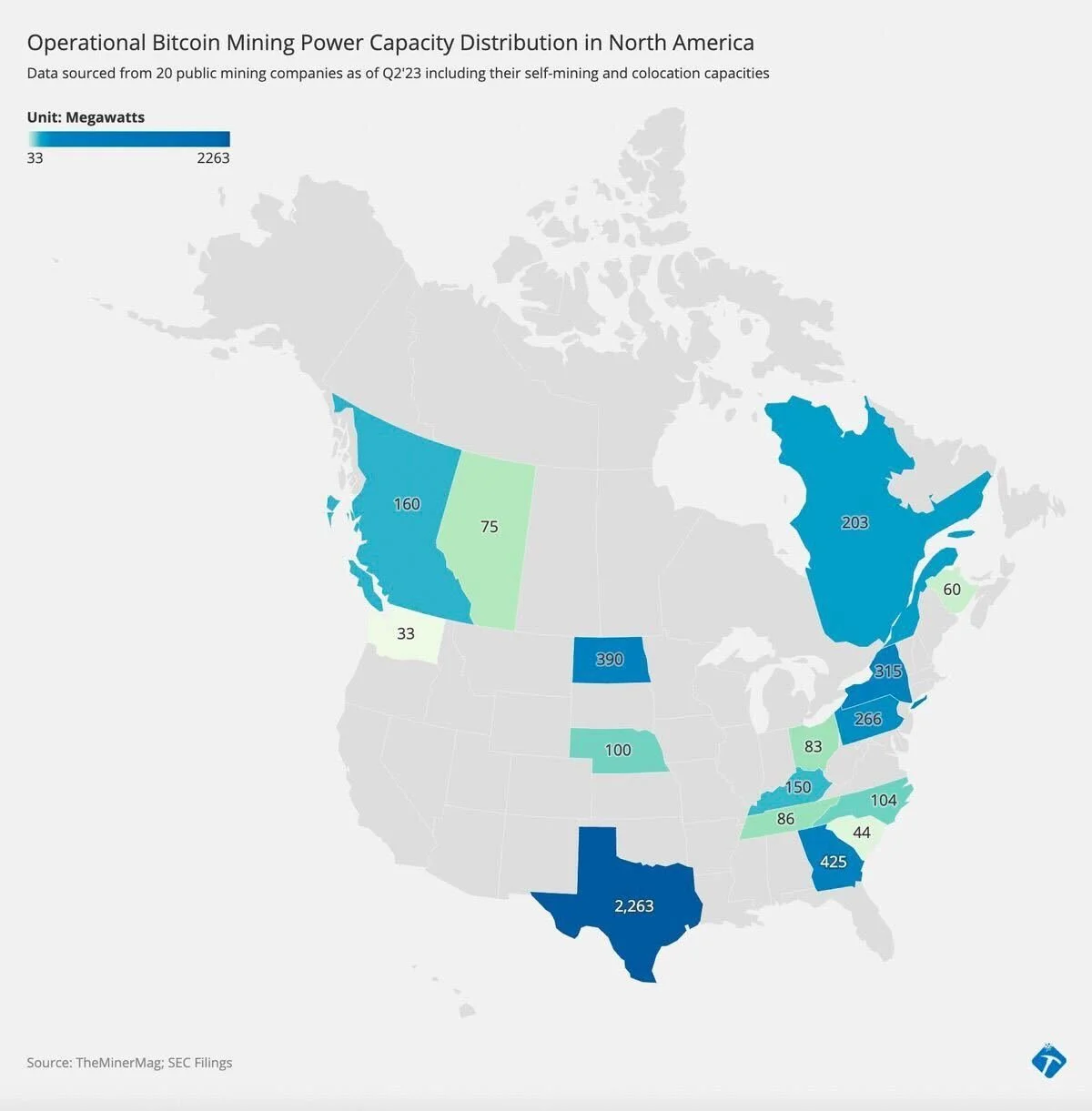Why is the Biden Administration targeting Bitcoin Miners?
There has been a showdown. It took place between the U.S. Department of Energy and prominent Bitcoin miner Riot Blockchain and the Texas Blockchain Council. The DoE’s statistical arm, the Energy Information Administration, will no longer complete its survey that it began collecting data for in February. A small win for the Bitcoin mining community. A big stumbling block for the Biden administration’s accusations against bitcoin miners.
It’s bad for the climate! It’s the Bitcoin miners fault! That is what the Biden administration would have us believe. Back in 2022 a report by the White House Office of Science and Technology Policy stated how “crypto assets could hinder broader efforts to achieve net-zero carbon pollution consistent with U.S. climate commitments and goals.”
This report came only a few months after U.S. Senators including Elizabeth Warren had sent a letter to the Electric Reliability Council of Texas (ERCOT), the operator of Texas’ electrical grid, seeking information. The information sought was about ERCOT’s subsidies for cryptominers. About how cryptomining is impacting climate change, the stability of the energy grid, and consumers. Senator Warren cited in her correspondence how “the energy grid is on the verge of collapse.” Has she made the Bitcoin mining industry a scapegoat?
Why have Bitcoin Miners been targeted?
In 2022 there were a few mentions in the press about Bitcoin miners and the use of fossil fuels. However, very few of these cases pointed to the fact that fossil fuel use is on the increase within the Bitcoin mining community. Almost none. Importantly, the few Bitcoin miners that have any type of mention in the White House report from 2022 are not related to Texas but to Pennsylvania, Kentucky, New York, and Indiana. Of the few cases cited, the companies involved all stated their desire to move away from fossil fuels. Which just aggravates the problem. Why have Bitcoin miners been targeted? And why in Texas?
Texas is at the forefront of Bitcoin mining. The Lone Star State is responsible for over 30% of the hashrate in the U.S. today. It is also home to 5 of the largest ten Bitcoin mines in the U.S. Add to this how the U.S. is currently the world leader in terms of its share of the collective hashrate of the Bitcoin network. It means Texas is the capital of Bitcoin mining globally.
What did the Energy Information Administration want to Survey?
On February 1st 2024 the Energy Information Administration (EIA) released a statement. It declared how it had received an emergency clearance pursuant to Office of Management and Budget procedures. This meant that the organization would survey Bitcoin miners monthly from February through July 2024.
It wasn’t the fact that the EIA wanted to conduct a survey. It was the way the survey was announced and the scope that it covered.
Lee Bratcher, President of the Texas Blockchain Council highlighted how the federal government has the authority to collect energy usage data. However, it was certain other information that the EIA was interested in that flagged concerns.
In a verified complaint to the United States District Court for the Western District of Texas Waco Division the grievances of the Bitcoin mining community were highlighted clearly. Texas Blockchain Council appeared beside Riot Platforms, a Bitcoin mining company, in the complaint.
The parties (Texas Blockchain Council and Riot) stated in the complaint the following:
“This is a case about sloppy government process, contrived and self-inflicted urgency, and invasive government data collection.”
Lee added how the data requested by the EIA “comprised highly proprietary information including the number of mining units, the age of the units, their mining electric load, and the mining hash rate.”
“That information, taken together with the facility’s electric consumption, could permit competitors in the U.S. and abroad to reverse engineer a company’s mining operation.” Lee highlighted.
How Bitcoin Miners help and not hinder
Creating a Bitcoin mining facility is a cumbersome task and can take up to a year. Regulatory approvals are also needed as most of these facilities operate similarly to large data centers. And, like data centers, mining operations use electricity. What is unique about the way they operate is how the related electrical loads are ‘flexible’.
The Electric Reliability Council of Texas or ERCOT refers to industrial-scale cryptocurrency miners as ‘large flexible loads’ or LFL. ERCOT leverages these large flexible loads to stabilize the grid. Through voluntary curtailment programs, ERCOT incentivizes cryptocurrency miners to take energy off the grid when supply exceeds demand and give energy back to the grid when demand exceeds supply.
Most Texas-based miners, including members of the Texas Blockchain Council, participate in ERCOT’s voluntary curtailment programs. These initiatives have been critical in keeping the lights on for Texans during periods of high electrical demand.
The role of the Texas Blockchain Council
Miners have partnered with the Texas government in other areas as well. For example, during Texas’s last legislative session two mining-related bills were passed. The first, HB 591, provides incentives for mining data centers to utilize otherwise wasted gas to generate the electricity they use. The second, SB 1929, requires miners with energy capacity over 75 megawatts to register with ERCOT and share certain data with ERCOT. Each of these bills were passed in partnership with the Texas Blockchain Council.
One of the main roles of the Texas Blockchain Council is to represent its members. To ensure that its members are protected from harm, loss of earnings, or burdensome government demands for sensitive and proprietary information.
In the case of the EIA survey the involvement of the Texas Blockchain Council was critical in gaining a restraining order and / or preliminary injunction prohibiting the Department of Energy and Energy Information Administration from collecting EIA-862 data from identified commercial cryptocurrency miners.
Bitcoin, cryptocurrency, and the related mining industry form a part of a necessary and innovative technology sector in the U.S. To protect and nurture this maturing industry sector the efforts of the Texas Blockchain Council will be needed today, tomorrow and in the future.


